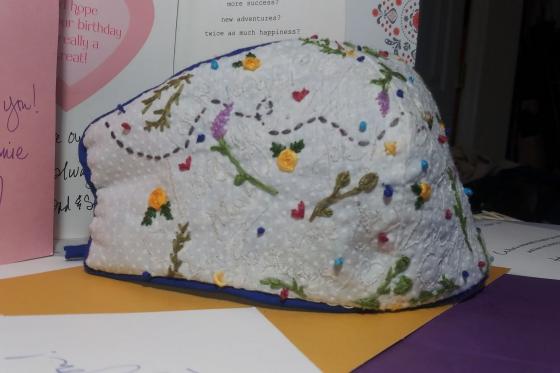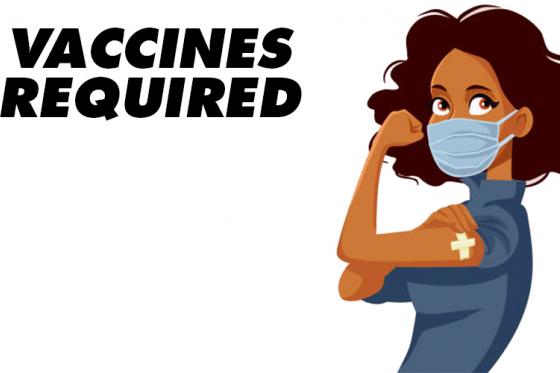One way theatres have continued to create and reach out to their communities during the Covid-19 shut down is through online classes. About 10 weeks ago, OTC’s Education Department responded to Maryland’s stay-at-home order by launching an online education series. From late March to the end of May, our very busy Zoom account hosted a class nearly every hour between 9 a.m. and 5 p.m. on weekdays. Taught by artists and staff members, these classes covered a variety of topics from acting, to props, to playreading, and crafts.
In June, OTC will launch a condensed version of our online classes, which will last through the month. In the wake of our “first round” of online classes, I wanted to reflect on the challenges, benefits, and impact of online theatre education and how we can make the most of remote learning until our doors can open again.
“The medium and pedagogy of online teaching are new to everybody. It’s been a crazy but also fascinating learning process” said Hannah Ensign, OTC’s Education Apprentice. Hannah has been teaching six, hour-long classes each week. “One of the biggest challenges has been just learning the mechanics of Zoom and how I can use that to my advantage to keep everyone on task.” Technical issues abound with online classes from slow internet connections, to muted mics, to hackers. Educators have taken a crash course in adapting or creating classes for video/phone conferencing sites.
Beyond technical issues, theatre education in particular offers a unique challenge to educators and students. So much of what theatre artists have to teach relies on human-to-human interaction and the resources provided by the physical location of the theatre. “While it’s been a good opportunity to engage our community and offer kids these new mediums of diving into arts education, it’s not the same as being in person” Hannah said. “I’ve had to adjust my expectations as to the things I’m able to offer and the things the students are able to receive.”
For example, one of Hannah’s weekly classes is a movement class for elementary students. Movement classes tend to focus on how students can use their bodies to be expressive and tell stories. “The movement I’ve learned to teach is based on learning to move, create, and tell stories as a group,” Hannah explained that through online classes, they’ve learned how to teach movement in new ways. “The group storytelling aspect is now based on imagery and how images look with all of these tiny little zoom screens rather than like how people move as one.”
In some ways, moving online makes these classes more accessible. Theatres around the world have created thousands of hours of classes, most of which are either free or low-cost. They can also ignore physical location. “I’m now teaching kids that I would never have reached if we weren’t doing online teaching. A lot of my classes have kids who are in multiple different states. They’re connecting with each other and they’re connecting with me in ways that never would have been possible before. I think that’s exciting.”
However, accessibility to these classes and the valuable communities they create relies on a strong internet connection. According to the FCC’s most recent report (2018), there are more than 14 million people in the U.S. without internet access and 25 million without fast and reliable broadband access.
Despite the limitations and challenges of online classes, they’ve been a vital part of maintaining our connection to each other during this time of social distancing. They’ve also caused us to expand and adapt to meet this new challenge. “Initially when I started doing this, I was a little worried that being in this online medium was going to diminish our capacity to be creative and tell stories together, but it’s really been the opposite. The kids I’m working with have the most amazing ideas. They’re so creative and they're so imaginative.”
My personal favorite moment of teaching online classes for the past 10 weeks has been one teen’s response to Twelfth Night in our Teen Play Reading Club. He compared Malvolio, the vain, pompous steward, to Squidward, the cantankerous squid from Spongebob Squarepants. In what turned out to be an adept evaluation, the students continued to compare and contrast the whole of Shakespeare’s comedy to the underwater town of Bikini Bottom.
Tracy C. Davis, writing for HowlRound Theatre Commons wrote that theatre training “can thrive when obstacles are broached as opportunities.” How this time of online communication will affect us moving forward is uncertain, but I have loved the opportunities for discussion it’s created.







